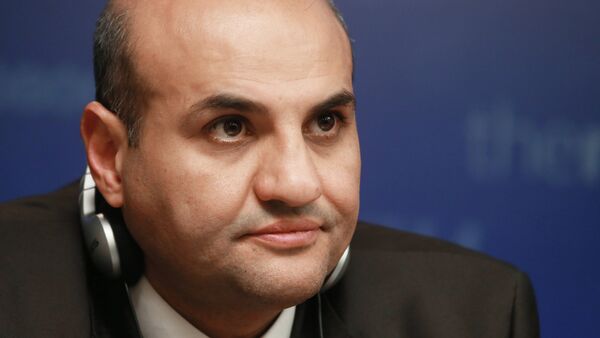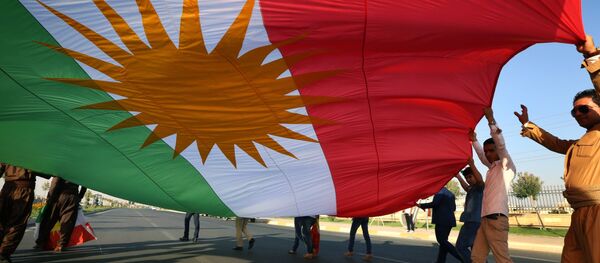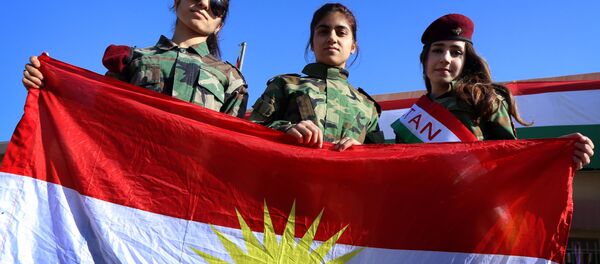MOSCOW (Sputnik) — The creation of an independent Kurdish state in Iraq, allegedly welcomed by Israeli Prime Minister Benjamin Netanyahu, may lead to instability in the region, with Israel benefiting from the upset, Tarek Ahmad, a member of the Syrian Social Nationalist Party (SSNP), told Sputnik.
"An attempt to establish an independent Kurdish state anywhere in the Middle East will really encourage multiple wars because the question with the Kurds is how to draw the borders of the state. It is very dangerous for the region’s and the world’s stability," Ahmad said.
The SSNP member suggested that Israel, backed by "some American lobbies" might want to "benefit from chaos using these small nations as a tool in their game."
Shlomo Brom, a former director of the Strategic Planning Division of the Israeli Defense Forces, currently a senior research associate at the Israeli Institute for National Security Studies, also said that the establishment of an independent Kurdish state might potentially contribute to the destabilization in the region.
According to Brom, the Israeli prime minister's comments could be provoked by the desire to say something that Ankara "would not like."
"Netanyahu this time decided to talk because [of] what [Recep Tayyip] Erdogan, the Turkish president, said about Israel and its conduct around the crisis that took place over the Temple Mount a few weeks ago," the expert said.
Brom also told Sputnik that Israel has been looking for regional allies since its establishment and minorities, such as Kurds, were "natural allies" in this situation.
The expert said that the alleged remark seemed unlikely to strain Israel's relationship with the United States, which has been wary about the proposed independence referendum planned by the Iraqi Kurds. Brom added that this would not be a source for concern since he did not see Israel making any real effort to support the potential new state.
The US State Department expressed worry over the vote potentially becoming a distraction from the ongoing fight against terrorists. In July, Iraq's forces liberated the city of Mosul from the militants of the Islamic State terror group (IS, banned in Russia). However, the fight against the group continues.
On Monday, the High Electoral and Referendum Commission (IHEC) of Iraqi Kurdistan approved September 25 as the date for the referendum on the region’s independence from Iraq. In June, Masoud Barzani, the president of Iraqi Kurdistan, announced his intention to hold an independence referendum in late September. Baghdad has criticized the decision.
Iran, Iraq, Turkey and Syria all have significant Kurdish minorities, but only Iraq has an official autonomous Kurdish region. In March 2016, the administration of Rojava, a region in the north of Syria with large Kurdish population, decided to seek autonomy. The Syrian government responded by saying that the Kurds’ unilateral decision had no legal power.




